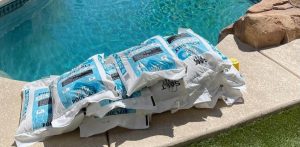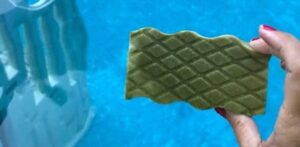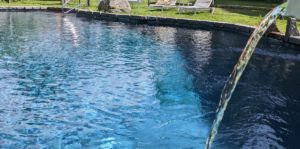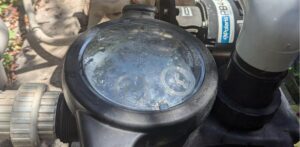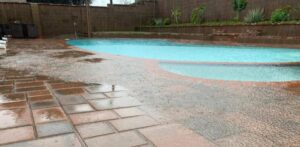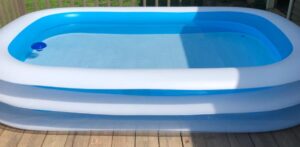We all wish pools could be a simple plug-and-play endeavor. However, the privilege of owning a pool also means taking responsibility for its upkeep.
Pool maintenance is crucial not only for ensuring a healthy and safe swimming environment but also for extending the life of the pool and its equipment.
Whether you are a new pool owner or are looking to take the reigns and handle your pool maintenance, here are some basics on what to know.
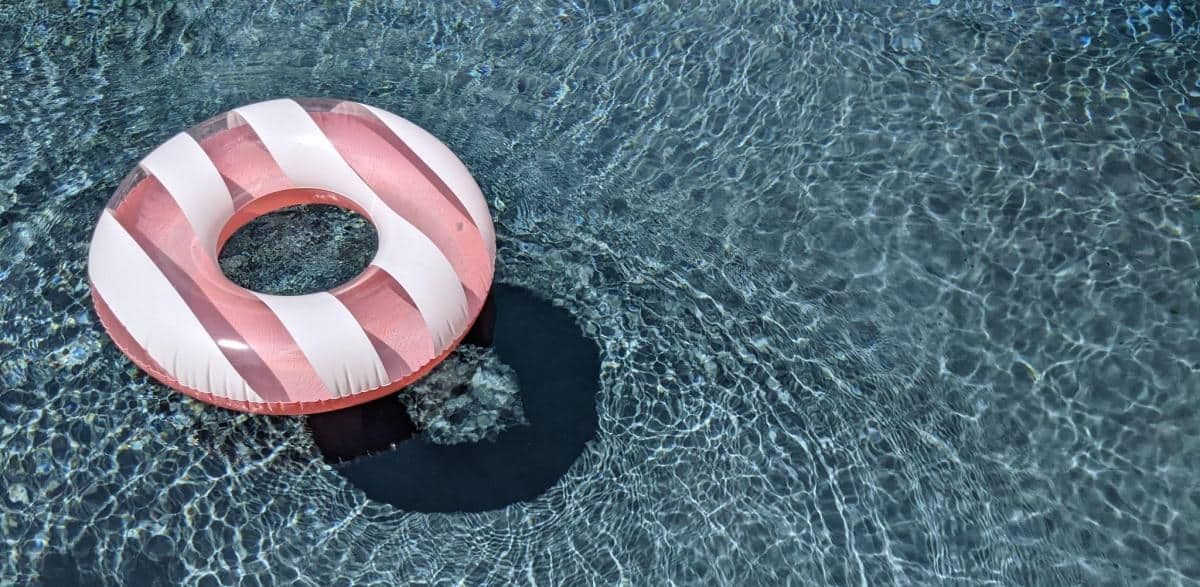
Your Pool is Unique – Know How It Works
Not every pool is the same. While this guide will steer you in the right direction on how to maintain a pool, it is important to have a general knowledge and understanding of the different parts of your pool.
Pool Build
It might not seem like it, but there is a big difference between pool maintenance, depending on your pool type. Typically, pools are built with either plaster, fiberglass, or a vinyl liner. Each build has various maintenance needs.
For example, a plaster finish requires monthly testing of calcium hardness (CH), but pools with a vinyl liner don’t need calcium in the water.
Saltwater Pools
Saltwater pool maintenance shouldn’t be much different than a pool that uses traditional chlorine. The same problems can arise, and the same solutions will apply.
The only major difference will be that you don’t have to carry multiple gallons of jugs to your house every week!
Filtration System
Your pool filter and pool pump are what make your pool run. They do the bulk of the work for you by moving the water in and out of the pool, filtering out the organics and “bad stuff” in the middle.
Without a working system, water will not circulate which can invite algae outbreaks and an unhealthy swimming environment. Not good.
There are three types of filters: cartridge, Diatomaceous Earth (DE), and sand. Knowing what type you have will make pool maintenance much easier!
Skimmers and Return Jets
As the pump pulls and pushes water throughout the filtration system, how does it actually cycle through? The answer is the pool’s piping, starting and ending with its returns and skimmers.
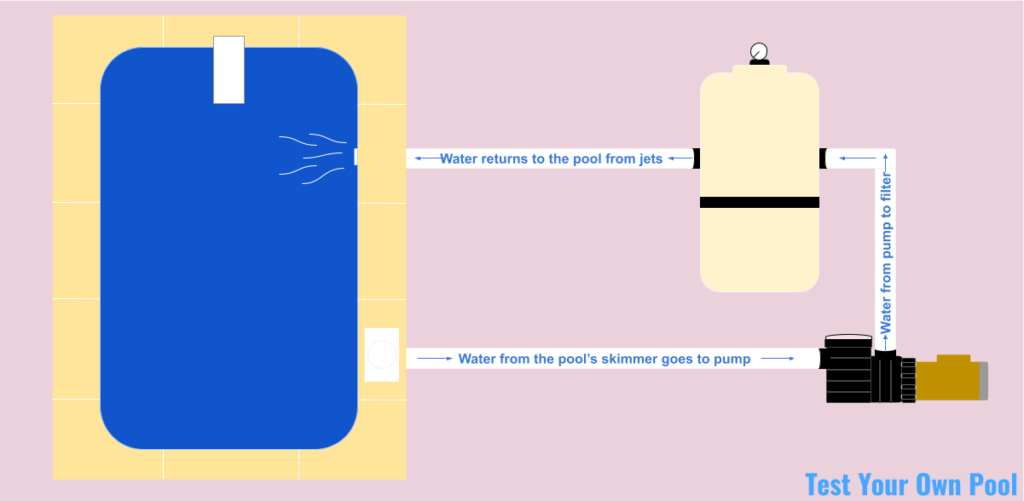
A pool skimmer is an opening built into the side of the pool with the purpose of sucking in the pool water to send it to the filter. Skimmers usually come with a basket to catch large debris and a weir door to encourage debris to stay in the basket.
A return jet is how water returns from the pool’s filter back into the pool. They are situated under the water level and help with the overall circulation of the pool.
Basic Pool Maintenance
All pool owners should have general knowledge of important maintenance tasks. This will not only save you money, it can also prevent future headaches and water problems!
Pool Chemistry: Maintaining Proper Water Balance
Keeping your pool’s water balanced with the recommended chemicals is crucial for preventing bacterial growth and keeping the water clear and safe for swimming.
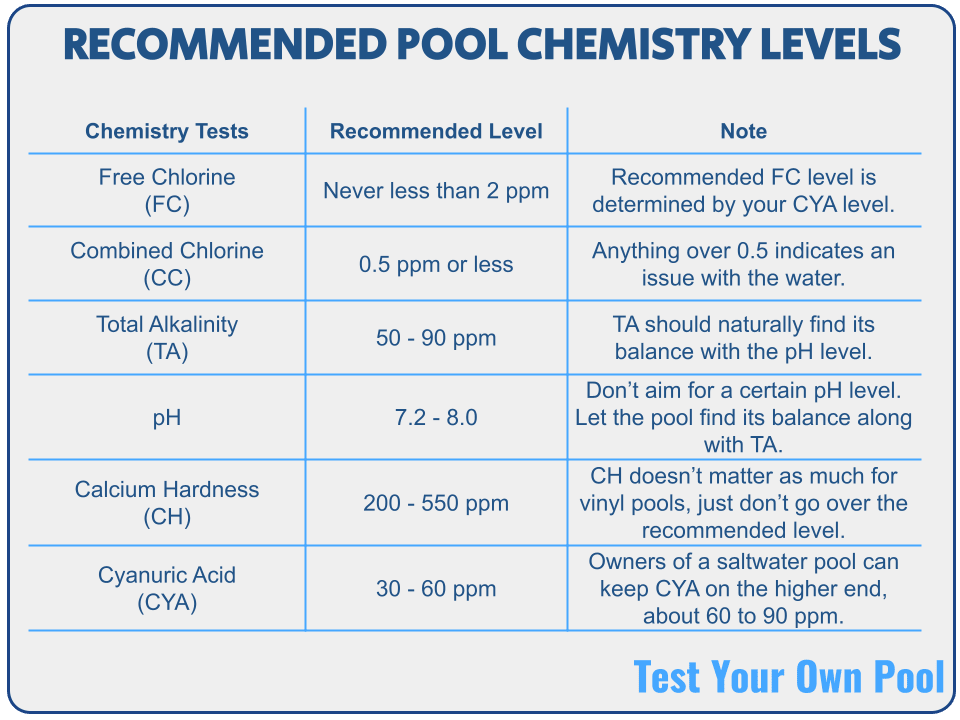
In general, testing the pool is the most important aspect of pool maintenance. Without it, you don’t have a good idea of how healthy your water truly is.
A pool testing kit is crucial for testing water chemistry and adjusting the chemicals as needed.
Pool Cleaning: Skimming, Brushing, and Vacuuming the Pool
For those without automated methods of cleaning the pool, like robots, a routine pool cleaning schedule should be maintained for brushing, vacuuming, and skimming the water surface.
Brushing the pool walls, floors, and steps will remove and loosen organics, debris, and other human-made particles that can accumulate and create an environment for algae growth.
Finish it off with a manual vacuum of the pool floor and walls to ensure your pool is clean and clear!
Pool Circulation: Cleaning Pool Filters and pumps
Overall, water circulation and filtration are essential for keeping the pool water clean and debris-free. Good circulation can solve a lot of problems that may arise.
Depending on the type of pool pump that you have will determine how long your pump should be running.
For example, variable speed pumps can run 24/7 on a slower RPM and increase as needed. On the other hand, single-speed pumps can only run on one speed, which may force users to reduce pump runtimes to 10-12 hours a day
Filter cleanings are also necessary to ensure your water flow is hampered by organics and other debris in the filter. Routine backwashes or cartridge rinses will be necessary depending on the type of filter.
Diagnosing Common Pool Water Problems
Even though we try our hardest to prevent any outbreaks or issues with our water, they can happen. What immediately happens after is crucial to completely getting rid of the problem.
These can cause permanent damage to pool surfaces and equipment, like surface stains and corrosion.
You should know some of the more common pool water issues, how to eradicate the problem, and ultimately how to prevent them from happening in the first place.
Create a Simple Maintenance Schedule
It is a good idea to write down a basic maintenance schedule for your pool so anyone can follow it. It also helps you keep all the to-dos in check. It’s easy to forget about a backwash or brushing when you are too busy enjoying the pool.
A pool testing schedule will help keep your water balanced. It is recommended to write down every time you test to better understand how your water changes week to week (note: plenty of apps can save your previous testing results).
Brushing and vacuuming can be done on a weekly or as-necessary basis. The more you vacuum, the cleaner your pool will be, so it is recommended to do it weekly at a minimum.
Use Proper Storage for Pool Equipment and Supplies
Maintenance also applies to storage. When all your chemicals are poured and surfaces brushed, placing your supplies in a safe area is important.
Cleaning equipment like telescopic poles and skimmer nets can easily be stored in a pool house or shed, or clipped to the pool’s fence.
Storing pool chemicals should be done in a dark, dry, well-ventilated area away from other flammable items. Remember, not all chemical compounds play well with each other so it is important to read and follow all instructions on the labels for proper storage.
Winter Pool Maintenance
For those of us living in colder climates, there is some work to maintain the pool during the off-season.
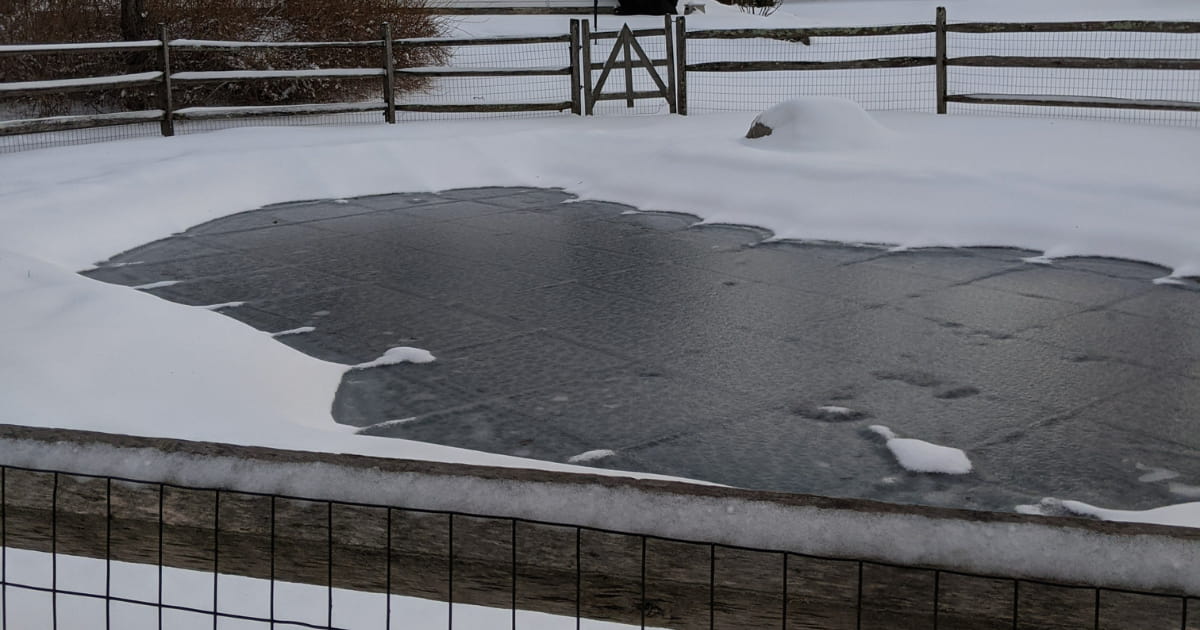
While a closed pool doesn’t necessarily require many chemicals (as long as the pool is closed properly!), there may be instances of fixing the pool cover or draining some of the water if it gets close to the top. However, most of the time is spent daydreaming about the summer anyway!
Owners who do not close their pools should still understand winter maintenance best practices. Preparing for a frozen pool is recommended as winter storms continue to hit areas not used to cold weather.
Know When to Call For Help
While almost all pool maintenance can be done by a non-professional, things happen that may require professional help and service.
Busted pipes, broken pumps, or damaged filters do happen from time to time. Knowing some pool companies and services in the area can be useful for those types of emergencies.
Maintenance is Happiness!
The more time you take to ensure your pool is at its best, the more time you can enjoy it with friends and family!
A few hours a week can reduce a lot of headaches. And soon, you can admit that you enjoy doing it!

